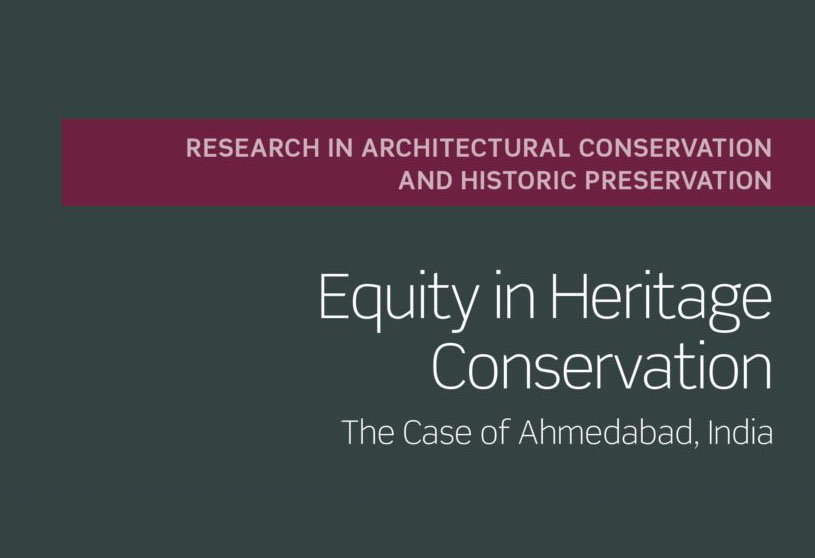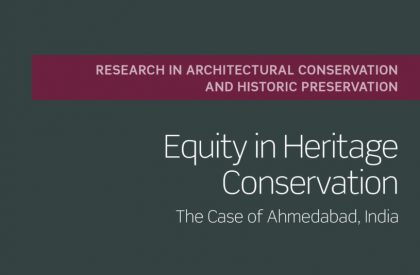About the Book
Does World Heritage status do cities more harm than good? Does the World Heritage tag take the life out of cities? These questions are regularly posed in articles and newspapers across the world. The main contention of the residents in cities like Venice and Barcelona is that tourists claim their day-to-day spaces in a way that takes away their own accessibility. Historic Ahmedabad, the first city from India to be designated as World Heritage Site by UNESCO has also seen similar processes. This book, through three case studies of recent change examines processes of identifying heritage of ‘outstanding universal value’ and how does the process negotiate day to day relationships of the inhabitants. Whose history gets valorised? What heritage gets conserved? Who are the typical agents of change? And what would be a process that would enable a more equitable understanding of heritage values?
Recognised by the UN’s Sustainable Development Goals as a measure to make cities inclusive, safe and resilient, conservation of natural and cultural heritage has become an increasingly important issue across the globe. The equity principle of sustainable development necessitates that citizens hold the right to participate in the cultural economy of a place, requiring that inhabitants and other stakeholders are consulted on processes of continuity or transformation. However, aspirations of cultural exchange do not translate in practice.
Equity in Heritage Conservation takes the UNESCO World Heritage City of Ahmedabad, India, as the foundational investigation into the realities of cultural heritage conservation and management. It contextualises the question of heritage by citing places, projects and initiatives from other cities around the world to identify issues, processes and improvements. Through illustrated chapters it discusses the understanding of heritage in relation to the sustainable development of living historic cities, the viability of specific measures, ethics of engagement and recommendations for governance.
This book, published by Routledge (2019), is a part of the research series in Architectural Conservation and Historic Preservation, and will appeal to a range of scholars interested in cultural heritage conservation and management, sustainable development, urban and regional planning, and architecture.
Contents of the book
Introduction
- Decoding Equity in context of Heritage Conservation
- Walled City of Ahmedabad, A World Heritage Site
- Bhadra – from maidanto Plaza
- The Heritage Street Project
- Chowks as day-to-day meeting places
- Interpretation of Equity and Way Forward
About the Author
Dr. Jigna Desai is an Associate Professor and is Program Chair for Masters in Conservation and Regeneration at the Faculty of Architecture and Executive Director of Center for Heritage Conservation, CEPT Research and Development Foundation. Presently, her area of study is to arrive at frameworks, tools and methods, through which theoretical ideas of sustainability and conservation of living historic environments can be translated into practice, while addressing the challenges of (co)production of space and commodification of heritage. This area of interest was triggered through her involvement with preparing the World Heritage Dossier for the Historic City of Ahmedabad where she has closely observed the transformations within the historic city. She is also a director at a small, award winning practice – JMA Design Co that she co-founded with Mehul Bhatt in 1999. She has worked extensively on architecture projects and conservation research and advisory in different parts of India, carried out advocacy for community-based conservation in partnership with national and international institutions and government organisations. She is an Expert member of the International Scientific Committee for Historic Towns and Villages, International Council for Monuments and Sites (ICOMOS) and National Scientific Counsellor for ICOMOS, India. Jigna has been teaching since 2002 at various institutions in India before joining CEPT University in full-time capacity in 2009. She brings to the institute, her experience in working with traditional urban environments and framing how traditional architecture and urban environments may be understood, studied and transformed.

